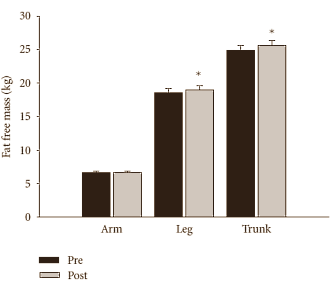|
Interval training helps the obese lose weight
Exercise programmes designed to help obese men and women to reach a healthier weight tend to result in limited weight loss. Researchers at the University of New South Wales write in the Journal of Obesity that fat people should actually train for shorter amounts of time than coaches usually get them to do - but far more intensively. Interval training is ideal for people who want to lose weight.
Weight loss & exercise
Coaches and personal trainers helping people to lose weight through exercise often get them to cycle or jog a moderate intensity for 30-40 minutes three times a week. Sustained exertion at a level where you can still just hold a conversation - this is optimal for fat burning, the story goes.
In theory this approach should work, in practice the results are nothing to write home about. This is probably because fat people still consume more calories than they can burn with 2-3 hours of moderately intensive exercise.

Part of the solution, according to the Australians, is to change the exercise programmes. Short-duration high-intensity explosive exertion may burn fewer calories than longer duration moderately intensive exercise, but the body uses relatively high amounts of energy to recover from explosive exertion.
So you may well expend more energy over a period of several days as a result of a 15-minute intensive training session than from a moderately intensive session lasting almost an hour. Here are more articles on the subject.
Study
The Australians tested this approach in an experiment with 46 obese men. All were in their twenties, with an average BMI of 28-29 - dangerously close to 30. If you have a BMI of 30, and aren't a power lifter or bodybuilder, you're probably obese. Your overweight is so serious that it's a danger to your health.
Half of the subjects went to the gym three times a week and cycled for 20 minutes. They did a 5-minute warming up, and then did short sprints of 8 seconds alternating with recovery periods of 12 seconds. The men trained at 80-90 percent of their maximal heart rate. They finished off with a 5-minute cool-down.
The men in the control group did not exercise.
Results
After 12 weeks these subjects had lost about 2 kg fat and their lean body mass had increased slightly.


Conclusion
"As this high intensity intermittent exercise program required minimal time commitment, it has implications regarding subject compliance with exercise interventions", conclude the researchers.
"Thus, physical activity prescriptions, which require the least effort, while still producing adequate reductions in subcutaneous and visceral fat are likely to be optimal and high intensity intermittent exercise would seem to fall under this category as subject's total exercise commitment was 60 min per week."
Source:
J Obes. 2012;2012:480467.
More:
Short interval training between meals keeps a slimming diet on course 15.06.2017
High-intensity interval resistance training boosts EPOC 25.02.2014
Archives:
Interval Training
Weight Loss
|







